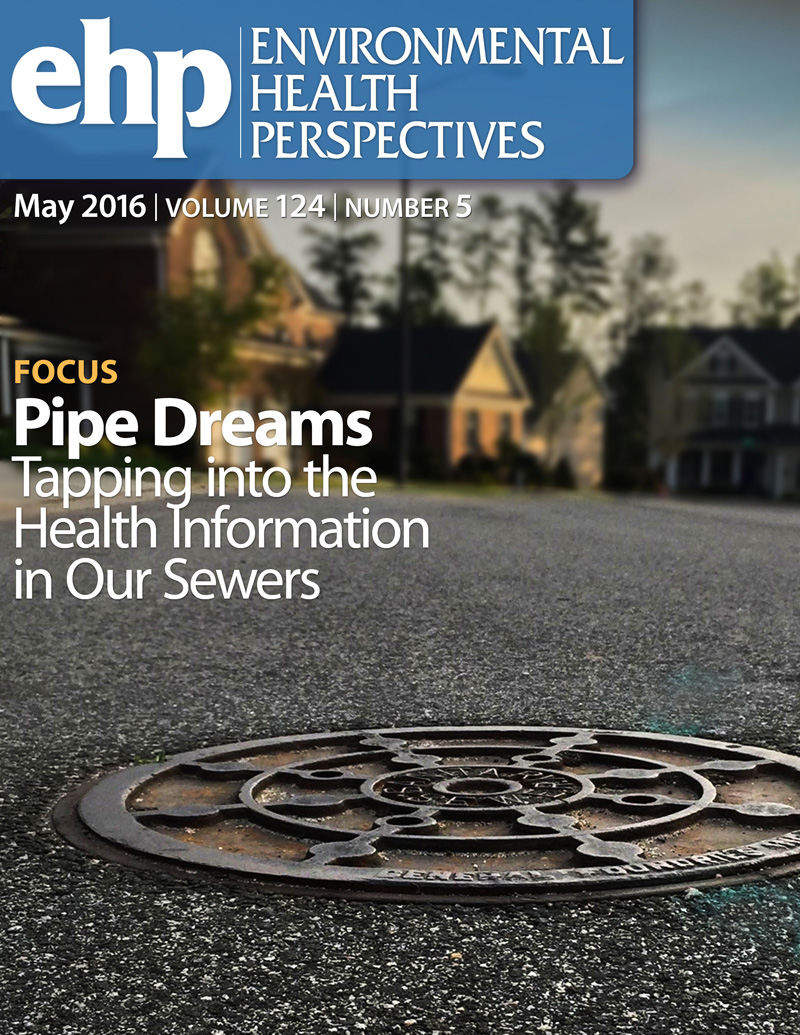Exposure to Sucralose and Its Effects on Testicular Damage and Male Infertility: Insights into Oxidative Stress and Autophagy.
IF 9.8
1区 环境科学与生态学
Q1 ENVIRONMENTAL SCIENCES
引用次数: 0
Abstract
BACKGROUND The impact of non-nutritive sweeteners on male reproductive health, particularly at the cellular level, remains insufficiently explored. Sucralose's high stability and resistance to degradation during wastewater treatment raises concerns about its long-term environmental and health impacts. Whether sucralose consumption correlates with reduced reproductive hormone levels and testicular damage remains unclear, and the underlying mechanisms require further investigation. OBJECTIVES This study aims to investigate the influence of sucralose on cell damage and reproductive health in male. METHODS The male mouse Leydig cell line TM3 and Sertoli cell line TM4 were used to evaluate sucralose-associated cellular damage. In vitro experiments assessed cell survival rates and the potential disruption of autophagy. Additionally, male SD rats were exposed to sucralose via oral gavage for two months at doses reflecting the acceptable daily intake (ADI) to evaluate sperm viability and reproductive health. RESULTS In vitro experiments demonstrated cells exposed to sucralose had significantly lower cell survival rates. Sucralose exposure significantly reduced cell viability in TM3 and TM4 cells, induced oxidative stress, and disrupted autophagic flux by impairing autophagosome-lysosome fusion. Additionally, sucralose downregulated T1R3 protein expression, suggesting a role for sweet taste receptor signaling in testicular cell regulation. In vivo, chronic oral exposure to sucralose led to decreased sperm viability and dysregulated reproductive function, including altered testicular morphology and suppressed steroidogenesis. DISCUSSION These findings provide new insights into the adverse effects of sucralose on male reproductive physiology, highlighting its role in disrupting autophagy, inducing oxidative stress, and impairing reproductive function. The environmental persistence of sucralose and its potential leakage into wastewater systems present broader implications for public health and ecological stability. This study underscores the importance of carefully evaluating non-nutritive sweeteners in the diet and calls for stricter food safety regulations and wastewater management practices to mitigate potential risks.. https://doi.org/10.1289/EHP15919.暴露于三氯蔗糖及其对睾丸损伤和男性不育的影响:氧化应激和自噬的见解。
背景:非营养性甜味剂对男性生殖健康的影响,特别是在细胞水平上的影响,仍未得到充分探讨。三氯蔗糖在废水处理过程中的高稳定性和抗降解性引起了人们对其长期环境和健康影响的关注。三氯蔗糖摄入是否与生殖激素水平降低和睾丸损伤相关尚不清楚,其潜在机制有待进一步研究。目的探讨三氯蔗糖对男性细胞损伤及生殖健康的影响。方法采用雄性小鼠间质细胞系TM3和支持细胞系TM4评价三氯蔗糖相关的细胞损伤。体外实验评估了细胞存活率和自噬的潜在破坏。此外,雄性SD大鼠以每日可接受摄入量(ADI)剂量灌胃三氯蔗糖两个月,以评估精子活力和生殖健康。结果体外实验表明,暴露于三氯蔗糖的细胞存活率明显降低。三氯蔗糖暴露显著降低TM3和TM4细胞活力,诱导氧化应激,并通过损害自噬体-溶酶体融合破坏自噬通量。此外,三氯蔗糖下调T1R3蛋白表达,提示甜味受体信号在睾丸细胞调节中的作用。在体内,长期口服三氯蔗糖会导致精子活力下降和生殖功能失调,包括睾丸形态改变和类固醇生成抑制。这些发现为三氯蔗糖对男性生殖生理的不良影响提供了新的见解,强调了其在破坏自噬、诱导氧化应激和损害生殖功能方面的作用。三氯蔗糖的环境持久性及其潜在泄漏到废水系统中,对公众健康和生态稳定产生了更广泛的影响。这项研究强调了仔细评估饮食中非营养性甜味剂的重要性,并呼吁制定更严格的食品安全法规和废水管理措施,以减轻潜在风险。https://doi.org/10.1289/EHP15919。
本文章由计算机程序翻译,如有差异,请以英文原文为准。
求助全文
约1分钟内获得全文
求助全文
来源期刊

Environmental Health Perspectives
环境科学-公共卫生、环境卫生与职业卫生
CiteScore
14.40
自引率
2.90%
发文量
388
审稿时长
6 months
期刊介绍:
Environmental Health Perspectives (EHP) is a monthly peer-reviewed journal supported by the National Institute of Environmental Health Sciences, part of the National Institutes of Health under the U.S. Department of Health and Human Services. Its mission is to facilitate discussions on the connections between the environment and human health by publishing top-notch research and news. EHP ranks third in Public, Environmental, and Occupational Health, fourth in Toxicology, and fifth in Environmental Sciences.
 求助内容:
求助内容: 应助结果提醒方式:
应助结果提醒方式:


